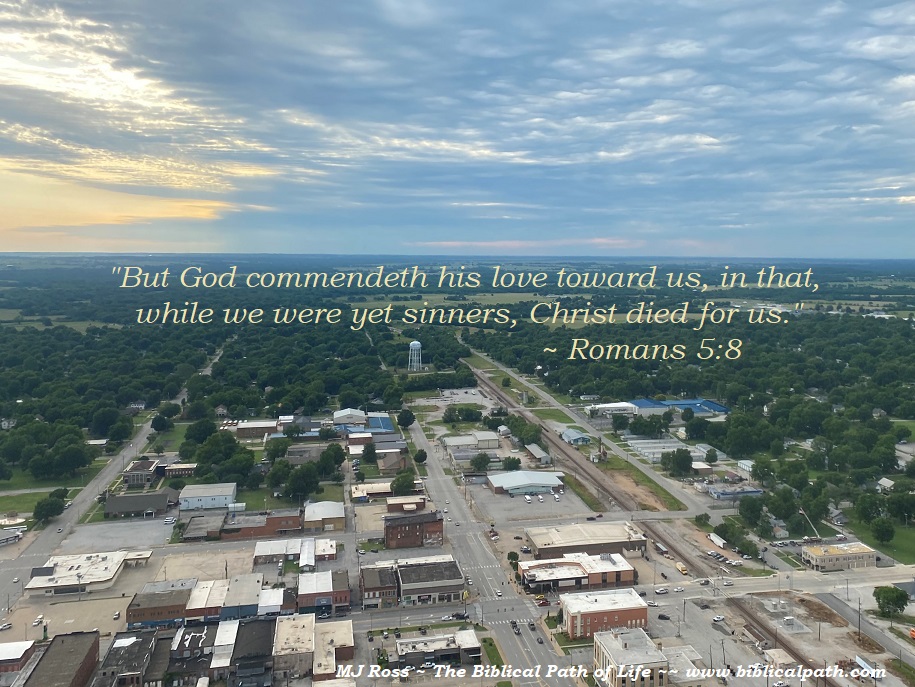
“And he spake this parable unto certain which trusted in themselves that they were righteous, and despised others:”
Luke 18:9
There is a very familiar parable that Jesus told about a Pharisee and a publican. “9. And he spake this parable unto certain which trusted in themselves that they were righteous, and despised others: 10. Two men went up into the temple to pray; the one a Pharisee, and the other a publican. 11. The Pharisee stood and prayed thus with himself, God, I thank thee, that I am not as other menare,extortioners, unjust, adulterers, or even as this publican.12. I fast twice in the week, I give tithes of all that I possess.13. And the publican, standing afar off, would not lift up so much ashiseyes unto heaven, but smote upon his breast, saying, God be merciful to me a sinner. 14.I tell you, this man went down to his house justifiedratherthan the other: for every one that exalteth himself shall be abased; and he that humbleth himself shall be exalted.” (Luke 18:9-14). The reason Jesus told this was to draw attention to the fact that some people “trusted in themselves that they were righteous”. This is a very dangerous thing and everyone needs to understand exactly what this means.
The word righteous has a very long definition in the Greek. Righteous (Dikaios) means “that which is right, conformable to right … When this absolute justice is applied to man, it is stated that there is no man who in his behavior can fully meet the expectations of God in his life (see Romans 3:10: “As it is written, There is none righteous, no, not one”)…” This very long definition helps one understand what the Bible means when it says righteous. The definition continues, for in Luke 18:9 it has a totally different meaning. Righteous (Dikaios) means “may also apply to the person who establishes his own rules of life. Such was a Pharisee whom the Lord exposed as righteous in himself (see Matthew 9:13: “But go ye and learn whatthatmeaneth, I will have mercy, and not sacrifice: for I am not come to call the righteous, but sinners to repentance.”; see Luke 18:9: “And he spake this parable unto certain which trusted in themselves that they were righteous, and despised others:”). Having set up and kept, or pretended to keep, certain standards, the Pharisees called themselves righteous or just in the sight of God. Most of these rules and regulations, however, were not those of inner holiness and conformity to God, but mere performance of external ceremonial ordinances (see Romans 10:3: “For they being ignorant of God’s righteousness, and going about to establish their own righteousness, have not submitted themselves unto the righteousness of God.”) … The nonbelievers, referred to as heathen, call others righteous or just, as they compare them with their own standards… Christianity must continually combat such a view …” There is much more to this definition, but this section is very interesting in that it deals with man’s definition of righteous – not God’s. Much like the Pharisee in the parable Jesus told.
Another time Jesus used this definition was when He was addressing the Pharisees as they challenged Jesus for eating with publicans and sinners whom Matthew had brought to meet Jesus. It would be important for us to remember that when people choose to follow Jesus (as Jesus’ disciples had), there is usually trouble stirring nearby. “10. And it came to pass, as Jesus sat at meat in the house, behold, many publicans and sinners came and sat down with him and his disciples. 11. And when the Pharisees saw it, they said unto his disciples, Why eateth your Master with publicans and sinners? 12. But when Jesus heard that, he said unto them, They that be whole need not a physician, but they that are sick. 13. But go ye and learn whatthatmeaneth, I will have mercy, and not sacrifice: for I am not come to call the righteous, but sinners to repentance” (Matthew 9:10-13). The scribes and Pharisees (the religious leaders) questioned Jesus – but they did not ask their questions directly to Jesus, instead asking Jesus’ disciples. However, Jesus knew what was happening. He immediately stepped in, and dealt with their challenge of Him eating with sinners. Jesus made it clear why He had come. Jesus had, “not come to call the righteous, but sinners to repentance.” If you ponder on that for a bit, understanding what the word righteous means according to what we just read, it might scare you a bit. Jesus told them to learn that they were sick (their self-righteousness would not uphold when they stood before God one day). Until they understood that they were sick (lost, apart from Christ and His righteousness), they would die in their sin and spend eternity in hell. They had to first acknowledge their sin, which leads to repentance. Only a sinner who is repentant before God can receive the righteousness of Christ which gives salvation. “And be found in him, not having mine own righteousness, which is of the law, but that which is through the faith of Christ, the righteousness which is of God by faith” (Philippians 3:9).
Have you rejected self-righteousness of your own making and instead chosen to receive the righteousness of Christ?




